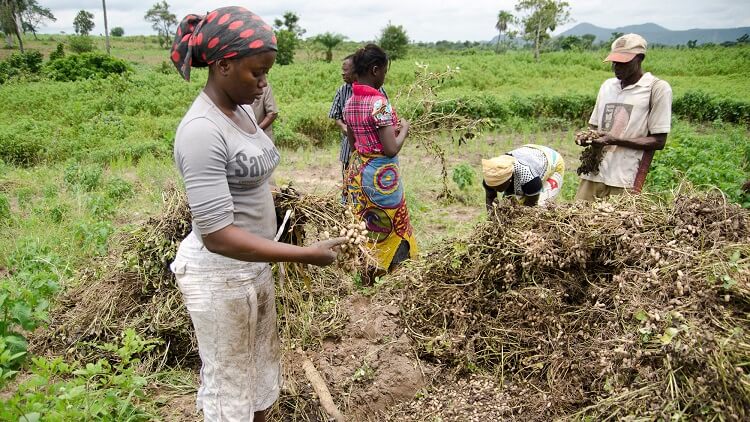Nigerian Farmers have identified lack of finance, insecurity, lack of machinery among others as the top factors that challenged their production in 2020, AFEX Commodity Exchange crop production survey reveals.
Data from the National Bureau of Statistics had shown that agriculture which remains a key driver of economic growth contributed 30.8 per cent to the nation’s overall Gross Domestic Product in the third quarter of last year
Advertisement
According to the survey report which was presented by David Ibidapo, AFEX Research Analyst, at the 2021 commodities outlook, the agriculture sector suffered decelerated growths in the second and third quarters of 2020, as business activity slowed by 1.58 per cent.
The 2021 outlook shows a supply deficit of about 2.5 million metric tonnes and high price for rice paddy, despite policies aimed at boosting production in the rice sector.
The import parity for paddy rice currently average at $520/MT compared to $468.96/MT in the domestic market at Import and Export window rate, hence the prices of paddy rice is expected to rise moderately amid the reopening of Nigeria’s land borders.
It stated, “Amid the weakening purchasing power of households, a resultant effect of inflationary pressure and weakening Naira against dollars, we do not envisage a significant effect on demand and ultimately price given paddy rice a major staple in Nigeria.
Advertisement
“We expect increased demand for domestically produced Soybean to push prices further northwards given the higher cost of importing Soybean amid supply shortfall.
“The import parity of Soybean is N303,602/MT at I&E rate. This will weigh on the possible effect of the commencement of African Continental Free Trade Area agreement, opening of the land borders on prices in 2021.”
For maize price outlook, it said the prices of maize may remain bullish prior 2021 harvest amid aggressive demand by industrial buyers.
“Also, the inclusion of Maize in the import ban list of the Central Bank of Nigeria will mean more demand for local Maize which will further pressure up prices,” it added.
The Exchange however recommended proper policy design, monitoring mechanism, and adequate and robust regulatory framework to boost access to smallholder farmers to loans at a lower cost as a key factor to boosting agricultural production.
Advertisement
The report also recommended increased budgetary allocation to agriculture, increased palliatives, free improved seedlings, subsidized farm inputs, improved capacity of strategic food reserves, more warehouses, among others to boost production for smallholder farmers.



